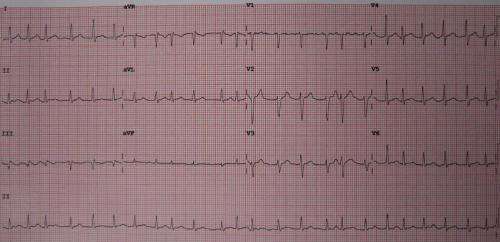Consumer health: Living with atrial fibrillation

At least 2.7 million people in the U.S. are living with atrial fibrillation, according to the American Heart Association. And because the risk of developing it increases with age and people are living longer, medical researchers predict the frequency will rise dramatically over the next few years.
Atrial fibrillation is an irregular and often rapid heart rhythm that can lead to blood clots in the heart. Atrial fibrillation increases the risk of stroke, heart failure and other heart-related complications.
Some people with atrial fibrillation don't notice any signs or symptoms. Those who do may have sensations of a fast, fluttering or pounding heartbeat; chest pain; dizziness or lightheadedness; and shortness of breath.
Treatment for atrial fibrillation depends on how long you've had it, your symptoms and the underlying cause of the heart rhythm problem. The goals of treatment are to reset the heart rhythm, control the heart rate and prevent blood clots that can lead to stroke. Treatment options can include medications, a therapy called cardioversion to reset the heart rhythm, and surgery or catheter procedures.
If you're living with atrial fibrillation, these healthy lifestyle choices can reduce the symptoms and risks of complications:
- Eat heart-healthy foods. Eat a healthy diet that's low in salt and solid fats, and rich in fruits, vegetables and whole grains.
- Exercise regularly. Exercise daily and increase physical activity.
- Quit smoking. If you smoke and can't quit on your own, talk to your health care team about strategies or programs to help you break a smoking habit.
- Maintain a healthy weight. Being overweight increases your risk of developing heart disease. Healthy weight loss can help manage symptoms of atrial fibrillation and may improve the results of catheter ablation.
- Control blood pressure and cholesterol levels. Make lifestyle changes and take medications as prescribed to correct high blood pressure or high cholesterol.
- Limit alcohol. Binge drinking—having five drinks in two hours for men or four drinks for women—can increase the chances of atrial fibrillation. In some people, even modest amounts of alcohol can trigger atrial fibrillation.
- Get follow-up care. Take your medications as prescribed. Have regular follow-up appointments with your health care team and tell them if your symptoms worsen.
©2022 Mayo Clinic News Network.
Distributed by Tribune Content Agency, LLC.



















